© 2013 The Texas Lawbook.
By Natalie Posgate
Staff Writer for The Texas Lawbook
(June 26) – Most days, Michele “Mitch” Gibbons focuses her law practice at Jones Day on securities, banking and corporate finance issues. One day, however, she read about “Anna” (not her real name) in a newsletter from the Tahirih Justice Center, a non-profit organization that provides legal and social services for women and girls seeking political asylum in the United States.
Anna wanted to continue her college studies in Houston. Her family wanted her to return home to Mali in West Africa to become the third wife of a man twice her age – something that also would require her being circumcised.
Gibbons volunteered to take Anna’s asylum case pro bono. The immigration hearing took place in spring 2011, and Anna was granted asylum a few months later.
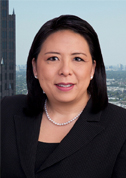
The process changed both of these women’s lives.
Anna completed her associate’s degree and will soon earn her bachelor’s degree. She’s working, has learned to drive and has bought a car. When she graduates, she hopes to make a difference in people’s lives using biomedical technology.
Gibbons, too, realized the rewards of making a difference. She continues to serve as a volunteer attorney and advisory board member with the Tahirih Justice Center, where Houston director Anne Chandler says 90 percent of the volunteer lawyers do not have previous immigration law and/or litigation experience.
More legal help, however, is needed. According to a recent report by the Department of Homeland Security, Texas was the leading state of residence for refugees admitted to the U.S in fiscal year 2012. However, it was not the leading state for those granted asylum to reside.
Lawyers Make the Difference
The Department of Homeland Security and the Department of Justice granted asylum to nearly 30,000 people in 2012. According to a study by Syracuse University, 11 percent of refugees nationwide gained asylum status without legal representation. For those who had an attorney, 54 percent gained asylum – a 500 percent higher likelihood of gaining asylum than those without a lawyer.
Recent statistics released by the Executive Office for Immigration Review suggest Texas is doing worse than the rest of the nation. The Dallas Immigration Court, for example, only admitted asylum to 36 percent of those seeking it – almost a 20 percent lower rate than the national average.
A mother herself of two young children, Gibbons, who divides her practice between Houston and New York, approached the pro bono effort with a can-do attitude.
“When you’re in the middle of major cases, it takes your time, but there’s always time for it,” Gibbons said, adding that clients will meet with their attorneys on the weekends, at lunch – any time. “In the end, it does not take as much time as attention and resources.”
To help Anna keep her student visa after she lost her family’s financial support, Gibbons created a fundraiser for her own 40th birthday. She asked friends to donate $40 each, which allowed Anna to re-enroll in school and file her asylum application as “in status.” (Ethical standards prevented Gibbons from loaning money to Anna).
Last year, Fort Worth bankruptcy partner Ian Peck of Haynes and Boone also completed his first asylum case. It involved a woman who fled her home country after extensive persecution in retaliation to her assistance to an indigenous group. The Human Rights Initiative of North Texas referred the case to Haynes and Boone. Peck raised his hand.
Along with fellow Haynes and Boone lawyers, Peck worked on the case with in-house attorneys Gregg Formell and R. Bruce Wark of American Airlines, one of the law firm’s clients.
Obviously, asylum seekers and their cases vary. The United States grants refugees asylum if they are unwilling or unable to return to their home countries because of persecution or a “well-founded fear” of persecution because of race, religion, nationality, membership in a particular group or political opinion. Asylees can apply for residency in the U.S. one year after they are granted asylum, and after five years they can apply for citizenship.
While many partners devote time to these cases, firms also strive to provide their associates the opportunities to undertake asylum work.
Lauren Leahy, an associate at Vinson & Elkins until she left last year for a judicial clerkship in the U.S. District Court for the Fifth Circuit, won an award for her asylum work.
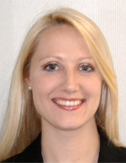
Leahy, a 2009 Harvard Law School graduate, began her pro bono asylum work when she interned for the Human Rights Initiative of North Texas during her 1L summer. She spent the majority of her internship helping an HRI client complete his asylum application.
After Leahy became a commercial litigation associate at V&E in 2010, the case resurfaced when the applicant’s brother arrived in the U.S. to seek asylum. Leahy successfully gained asylum for the brother, all while she was working on another case for a female client from Africa who had suffered female genital mutilation.
In 2012, Leahy received one of the Dallas Bar Association’s Dallas Volunteer Attorney Program’s annual Pro Bono Awards. The awards are presented through the HRI to outstanding associates who have significantly contributed to HRI’s pro bono mission.
Leahy described her asylum work as a positive experience and building block for her overall career.
“Not only did I think immigration law was interesting and the human stories extraordinary, I thought it was a great opportunity to develop experience,” she said. Leahy said she would remain committed to pro bono work – a “fundamental duty” – no matter how busy her career becomes.
“It grounds you as an attorney,” Leahy added.
Firmwide, V&E shares Leahy’s passion for asylum work.
John Wander, managing partner of V&E’s Dallas office, noted the firm’s lawyers are increasingly more interested in asylum work.
“Our view is that these are our clients,” Wander said. “As far as I’m concerned, a client from a country where they’re being persecuted is as important as AT&T is as a client.”
Jones Day Dallas partner Tom Jackson agrees.
“It’s hard to imagine doing anything that has more affect on you or your client than an asylum case,” Jackson said. “The secret is once you’re ready to do an asylum case, it is one of your regular cases.” He currently is working on a case that involves an Iranian man in his twenties who is fleeing persecution for converting to Christianity.
Along with intangible rewards, asylum cases can bring tangible obstacles. One of the unique legal challenges, lawyers say, is something they don’t typically encounter in their everyday practices: They must convince a judge their client is credible.
Haynes and Boone’s Peck noted that many asylum clients have been traumatized. Explaining the client’s plight to a court is “difficult when, in some sense, you can’t talk about it because they’re so emotionally damaged by it.”
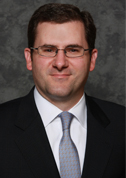
Legal director Chris Mansour of the Human Rights Initiative in North Texas said she frequently sees this phenomenon – often because of the manner the asylum applicants present their stories to the judges.
Because of the trauma of their experiences, clients often won’t relay their stories in chronological order. Or they might avoid eye contact when they are speaking to the judge because their culture deems the practice as extremely rude or disrespectful.
Whereas in the U.S., Mansour pointed out, “If you’re not making eye contact, you might be lying.”
For the clients, Mansour says, their biggest challenge is their lack of knowledge about the U.S. justice system.
“They come to the United States because they know it stands for human rights, but they don’t understand what asylum is or how difficult it is,” said Mansour, who practiced commercial litigation at a Midwestern law firm before joining HRI.
The Legal Obstacles
Lawyers also cite the challenge of finding expert witnesses to testify to prove their clients would face extreme danger if forced to return to their home countries.
Jones Day’s Gibbons spent months preparing Anna’s asylum application and getting ready for the hearing because they had to find expert testimony and translators to help with the language barrier.
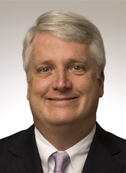
Alan Wright, a Dallas appellate lawyer at Haynes and Boone, who has worked on asylum cases since the 1980s, said, “There may be only three or four experts in the world who are truly ‘experts.’ Being able to find them and coordinate their schedules to get them to Dallas, Texas, on a date can be hard to do.”
There’s also the challenge of representing the very young.
For example, appellate litigation associate Meredith Parenti of Weil, Gotshal & Manges is currently representing an 11-year-old boy who fled alone to the U.S. from Central America.
“Being in court is very stressful for adults; when you’re a child and have no idea what’s going to happen, it’s even more stressful,” said Parenti, who was inspired to take her case because her client is the same age as one of her sons.
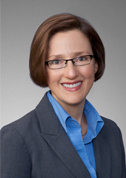
And, of course, there is the ongoing challenge of balancing an asylum case and other pro bono work with regular client practice.
Cam Zachry of Hunton & Williams accepted the challenge, despite his busy practice in white-collar criminal defense, internal investigations and securities litigation. Zachry and two other Hunton lawyers spent more than 650 pro bono hours to secure asylum for an Eritrean woman who had been severely beaten and tortured in her home country. She was granted asylum last year in December.
“It’s a great opportunity to potentially help people who are both in need of our help and are worthy of it,” he said.
Anna’s Story
But, as Jones Day’s Gibbons will attest, the facts in many of the asylum cases could change the life of the lawyers representing them, too.
In “Anna’s” homeland of Mali in West Africa, female circumcision – literally female genital mutilation – is a cultural norm and grim reality that many women are forced to undergo.
Typically, girls are sent to a hut where an elder woman of the village, called a “matron,” performs the procedure. No anesthesia is given; the surgical tools are often unsterile. Many have trouble walking for months after the circumcision. Others have health complications for the rest of their lives, including difficulty conceiving or giving birth. Sometimes, the procedure results in death.
Anna was lucky, however. She spent much of her childhood in Senegal, thanks to her father’s desire to protect his daughters from such merciless mutilation. For a time, Anna lived a somewhat carefree childhood. If she brought home good grades, she pleased her parents.
But when her father passed, his family pressured her mother to return to Mali and move in, since Anna’s father had been the sole financial supporter. Anna stayed in Senegal to complete high school, thankful that her father valued higher education. In 2007, after high school, she left for the United States on a student visa. She enrolled at a college in Houston to work toward a degree in biomedical engineering.
In 2010, Anna’s aspirations hit a wall when she received a letter from her mother. Her family had arranged her marriage to a man nearly twice her age. This man already had two wives and many children, and he required his wives to be circumcised – since women are not generally viewed as pure until they undergo the procedure. Anna’s family demanded that she return to Mali immediately to undergo circumcision before the wedding.
For a time, Anna’s fate seemed inevitable. Her family already had accepted the dowry. By December 2010, Anna feared she would lose her student status because her family no longer supported her financially, and her student visa prohibited her from working or receiving government financial aid. If she lost her student visa, she would have no choice but to return to Mali.
Then she met Gibbons and her awful fate turned around.
© 2013 The Texas Lawbook. Content of The Texas Lawbook is controlled and protected by specific licensing agreements with our subscribers and under federal copyright laws. Any distribution of this content without the consent of The Texas Lawbook is prohibited.
If you see any inaccuracy in any article in The Texas Lawbook, please contact us. Our goal is content that is 100% true and accurate. Thank you.
